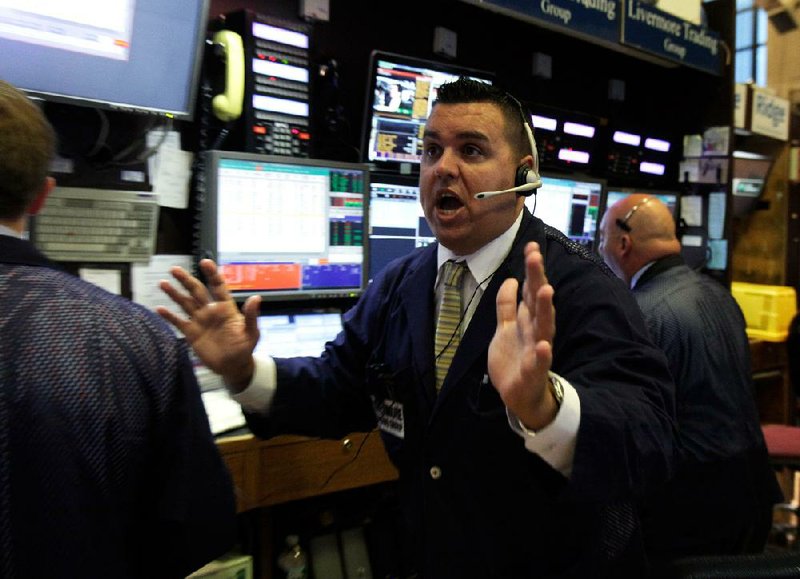LITTLE ROCK — European Central Bank President Mario Draghi said Thursday that policymakers will do “whatever it takes” to preserve the euro, suggesting they may intervene in bond markets as surging yields in Spain and Italy threaten the existence of the 17-nation currency bloc.
Draghi, speaking to an audience of business leaders in London at the Global Investment Conference, said that whatever the central bank does “it will be enough.”
Financial markets surged on speculation the central bank will act to lower Spanish borrowing costs after yields on the nation’s bonds rose to the same levels that prompted bailouts for Greece, Portugal and Ireland.
The central bank reluctantly started buying Spanish and Italian debt in August last year as part of its bond purchase program. The buying had little lasting effect, and the program was suspended in March.
“His comments certainly suggest that [central bank] purchases of Spanish and Italian bonds are back on the table for discussion,” said Chris Scicluna, head of economic research at Daiwa Capital Markets Europe. “But — just like last summer — we would expect any new [central bank] bond purchases to be temporary and limited until other policies are put in place.”
Fears about the economies of the 17 countries that use the euro have intensified over the past few weeks as evidence builds that recessions are deepening. Spain and Italy, in particular, are finding it increasingly expensive to raise money on the debt markets because of spiraling borrowing costs. Investors are losing confidence that the countries will be able to control their debt while they are in recession.
Spanish bond yields slumped Thursday after Draghi’s remarks, with the rate on the 10-year bond dropping to 6.91 percent. The yield touched a record 7.69 percent earlier this week. Recent rates above 7 percent have raised fears that Spain may be the next euro nation to seek a bailout from the other eurozone countries, after Ireland, Greece, Portugal and Cyprus.
The euro jumped in value and stocks rose after Draghi spoke. The single currency climbed as high as $1.2318 after trading earlier at $1.2118. The Stoxx Europe 600 Index gained 2 percent. The Dow Jones industrial average rose 211.88 points, or 1.7 percent, to 12,887.93.
Draghi did not say what the central bank might do to help lower high bond yields — but he left markets with the impression that some kind of action was possible. He warned that the bank would stay within the legal restrictions imposed by the European Union treaty that forbid it from directly helping governments.
The European Central Bank has used similar reasoning before to make limited purchases of government bonds to drive down a country’s borrowing costs. Starting in May 2010 the bank carried out a limited bond purchase program and accumulated over $246 billion in bonds.
In attempts to take pressure off the eurozone’s economy, the central bank this year has already cut its main interest rate to a record low of 0.75 percent.
It has also loaned $1.2 trillion to banks in December and February, a move that steadied banks and calmed markets for a few weeks. Banks used some of this money to buy government bonds and that temporarily lowered countries’ borrowing costs.
Draghi said Thursday that markets have underestimated the progress that’s been made in the euro area and that the monetary union is “irreversible.”
Leaders have this year inked agreements that aim to push the single currency toward tighter joint budgetary surveillance and a so-called banking union.
“The progress in undertaking deficit control [and] structural reforms has been remarkable,” Draghi said. “They’ll have to continue doing so, of course, but the pace has been set.”
Information for this article was contributed by Jeff Black, Jana Randow, Gabi Thesing, Rebecca Christie and Allison Bennett of Bloomberg News and by David McHugh of Bloomberg News.
Business, Pages 29 on 07/27/2012
